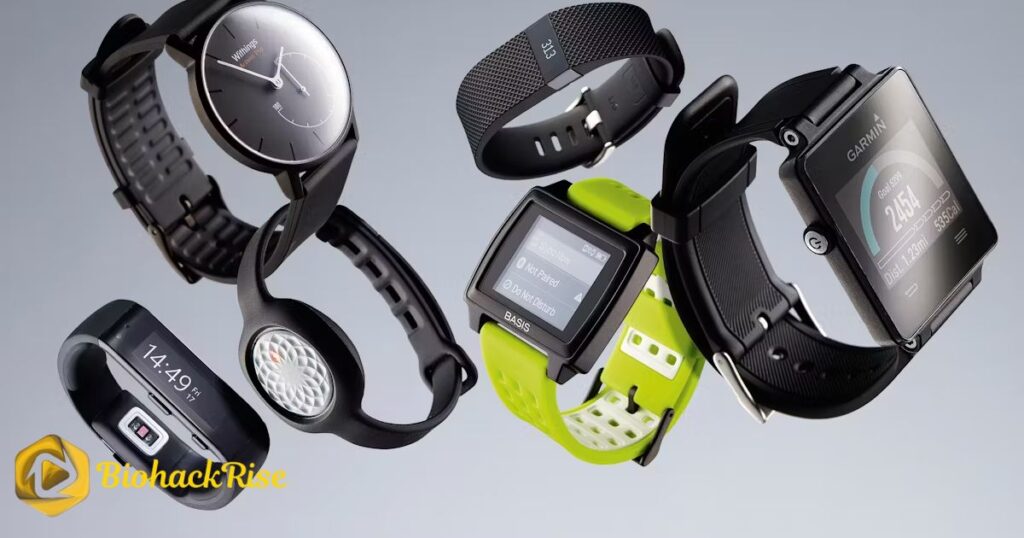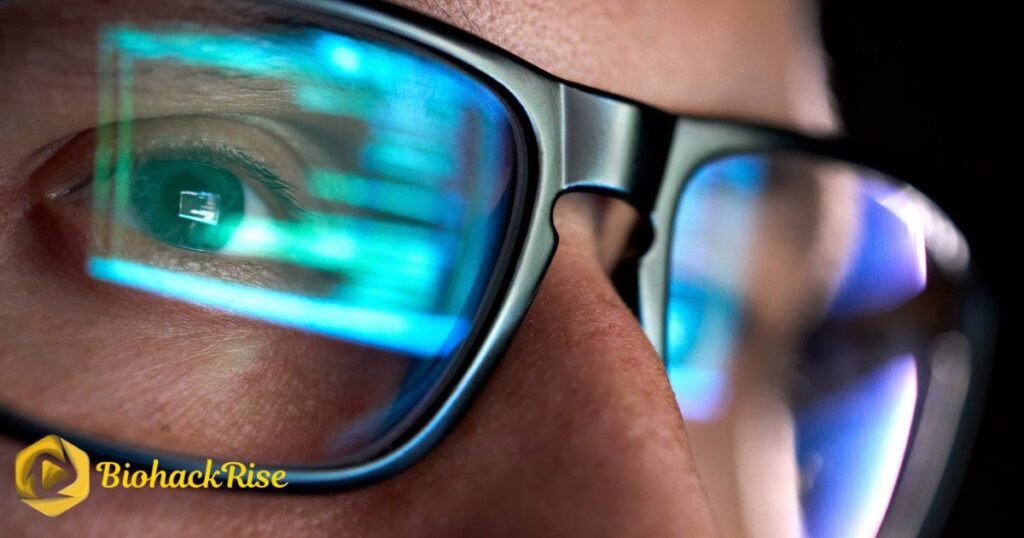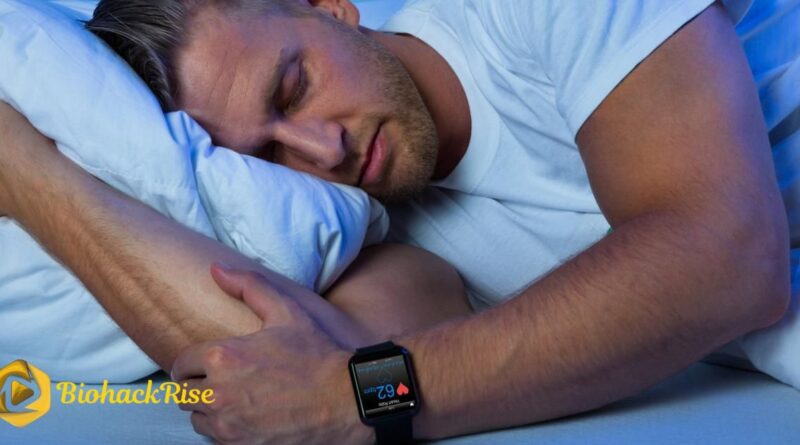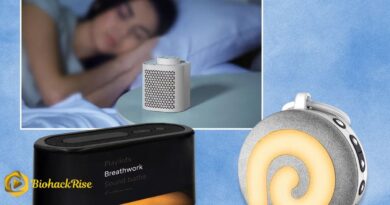What is Sleep Biohacking? Tips to Improve Sleep Naturally
Sleep biohacking is the art and science of optimizing your sleep using tools, routines and lifestyle tweaks. It’s not about sleeping more, it’s about sleeping smarter.
By understanding your body’s natural rhythm and supporting it with the right strategies, you can get deeper, more restorative sleep without necessarily spending more hours in bed.
Think of it like upgrading your sleep software. Just like you’d optimize your phone for better performance, you’re doing the same for your body and mind with sleep biohacking.
Understanding the Basics of Biohacking
Biohacking is all about taking control of your biology. It means experimenting with changes, diet, habits, tech and mindset, to improve your physical and mental performance. And when it comes to sleep, the returns are massive.
Why Sleep is a Popular Biohacking Target?
Sleep affects everything, energy, mood, memory, immunity and even weight. That’s why it’s the first thing many biohackers optimize. It’s the foundation for everything else in health and wellness.
How Sleep Affects Your Life?
Deep sleep boosts your immune system, supports muscle recovery and balances hormones. It’s like your body’s repair mode.
Cognitive Performance and Emotional Balance
Your brain uses sleep to clean out toxins, process memories and stabilize emotions. Without good sleep, your focus and patience tank fast.
The Science Behind Sleep
Your sleep moves through cycles, light sleep, deep sleep and REM. Each has its role. Deep sleep repairs the body, REM processes emotions. Skipping any stage is like skipping a level in a video game.
Circadian Rhythm and Its Role
Your circadian rhythm is your body’s internal clock. It tells you when to wake, eat, and sleep. Mess it up with late-night scrolling or caffeine and your sleep suffers.
Popular Sleep Biohacking Techniques
- Temperature
Keep your bedroom cool, around 65°F (18°C). A cooler environment signals your body it’s time to rest.
- Light Exposure
Use blackout curtains. Avoid blue light at night. Let the sun hit your eyes first thing in the morning.
- Noise and Air Quality
White noise machines help mask disruptions. Use HEPA filters or air-purifying plants to boost air quality.
Using Supplements for Better Sleep
- Melatonin: Regulates your sleep-wake cycle.
- Magnesium: Relaxes your muscles.
- L-Theanine: Calms your brain.
Start small and don’t overdo it, supplements support, not replace habits.
Wearables and Sleep Tech

Devices like the Oura Ring or Whoop Band analyze your sleep stages and offer data-backed suggestions.
Diet and Sleep
- Bananas
- Almonds
- Kiwi
- Herbal teas (like chamomile or valerian root)
These contain natural sleep-supporting compounds like tryptophan and magnesium.
What to Avoid Before Bed?
- Caffeine (6 hours before)
- Alcohol
- Heavy meals
- Sugary snacks
These disrupt your REM and deep sleep phases.
Exercise & Sleep Quality
Ideal Workouts for Better Sleep
Morning workouts are best for sleep quality, but even a short evening walk helps. Exercise reduces stress and balances sleep hormones.
Evening vs Morning Exercise
Morning workouts boost energy, while gentle evening workouts (like yoga) can calm your mind.
Mental Techniques for Sleep Biohacking
Deep breathing slows your heart rate and signals the brain to relax. Apps like Headspace or Calm offer guided sessions.
Sleep Hypnosis and Visualization
Imagining peaceful scenes or using hypnosis tracks can lead you into sleep faster. It’s like giving your brain a bedtime story.
Consistency in Routine
Go to bed and wake up at the same time daily, even on weekends. Your body loves rhythm.
Morning Habits that Influence Night Sleep
- Get morning sunlight
- Avoid snoozing your alarm
- Do light stretching or a short walk
These help “set” your internal clock for the day.
High-Tech Sleep Tools

Some smart beds adjust firmness, temperature and even track sleep stats in real time. Sleep pods create a dark, quiet cocoon for faster deep sleep.
Blue-Light Blocking Glasses
Wear these 1–2 hours before bed to reduce digital screen impact. They help melatonin levels stay strong.
Tracking Progress
Using Sleep Data
Wearables and sleep apps give you trends. Look for consistency in total sleep, deep sleep and disturbances.
Journaling Sleep Patterns
Note how you feel each morning, and what you did the night before. It’s like solving your own sleep mystery.
Common Mistakes in Sleep Biohacking
Overusing Sleep Aids
Reliance on pills or supplements can backfire. Your body can become dependent.
Chasing Perfection in Sleep Metrics
Data is helpful, but don’t obsess. If you stress over numbers, you’ll hurt your sleep even more.
Benefits of Mastering Sleep Biohacking
Longevity and Productivity
Good sleep slows aging, boosts memory and helps you think clearly. Want more energy during the day? Fix your nights first.
Better Mood and Mental Health
Sleep helps balance serotonin and dopamine, the feel-good chemicals. A solid night’s rest can reduce anxiety and boost happiness.
Real-Life Sleep Biohacking Routine Example
8:00 PM: No caffeine, dim lights
9:00 PM: Blue-light glasses on, herbal tea
9:30 PM: 10-min meditation or light stretching
10:00 PM: In bed, white noise on, blackout curtains closed
10:15 PM: Fall asleep effortlessly
Try this routine consistently for 7 days and track your results.
Lifestyle Habits That Affect Sleep
Caffeine & Alcohol
Both ruin sleep in sneaky ways. Caffeine stays in your system for hours and alcohol disrupts REM sleep.
Sleep Schedule Consistency
Going to bed and waking up at the same time every day is the simplest, most powerful biohack. Your body loves routines.
Real-Life Success Stories
People like Dave Asprey (the father of biohacking) swear by sleep upgrades like cold exposure and grounding mats.
Everyday Users’ Experiences
Reddit and wellness forums are full of success stories, people fixing their insomnia with nothing more than a routine and a few smart changes.
FAQ’s
Is it safe to use sleep supplements long-term?
It depends. Always consult with a healthcare professional. Natural options like magnesium are generally safe in moderation.
How long does it take to see results?
You can feel better in a few nights, but lasting change takes 2–4 weeks of consistent habits.
Do I need expensive gadgets to biohack sleep?
Not at all. Start with no-cost changes like better light exposure and consistent schedules.
Can teens and older adults try sleep biohacks?
Yes! Just tailor the methods to age-specific needs. Teens need more sleep and older adults may need routine adjustments.
Are sleep trackers really accurate?
They’re helpful for spotting patterns, but don’t obsess over the data. How you feel matters more than exact numbers.
Conclusion
Sleep biohacking is a game-changer. It’s not reserved for elite athletes or health freaks, it’s for anyone who wants to feel better, think clearer and wake up refreshed. Start with small tweaks. Add one habit at a time. Track your progress and be consistent. Your future, well-rested self will thank you.




